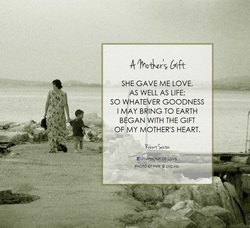Genre-colored glasses
Thoughts on genre, language, grammar, and other
rhetorical and linguistic norms
rhetorical and linguistic norms
|
The title of this blog comes from a comment a colleague made many years ago, that I see the world through genre-colored glasses. He was right, and he’s still right. Once I started studying the effects of genres on our language and writing, I saw those effects everywhere. As I hope to explore with everyday examples in this blog, genre shapes what we do, and what we think to do, but not necessarily what we can do.  Photo Credit: www.sxc.hu/photo/33876 https://creativecommons.org/licenses/by/2.0/ Photo Credit: www.sxc.hu/photo/33876 https://creativecommons.org/licenses/by/2.0/ When I go to buy a Mother’s Day card for my mother, I’m limited by the cards in the shop, their pictures and sentiments of moms as warm and supportive, and aware that they don’t fit my mom. But I’m buying a card because that’s what I’ve learned people do for Mother’s Day. So I either buy a card that doesn’t quite fit or skip that genre and write a letter or note instead. I’ll write a fuller post on my experiences buying Mother’s Day cards later. It’s a good one, for me, for showing how genres shape what we do in ways that might not exactly suit us. And what we can do about it, once we notice.  Sean Hoyer marriage equality = human rights (14527) https://creativecommons.org/licenses/by-nc-nd/2.0/ Sean Hoyer marriage equality = human rights (14527) https://creativecommons.org/licenses/by-nc-nd/2.0/ But genre isn’t the only lens through which I see the world. Language, more broadly, also encourages us to see some things and not others. And it reflects who we are. Our families, our homes, our identities, and our cultures all show up in the language we use and our attitudes toward the language others use. When my family moved from Colorado to Oklahoma for two years when I was seven, kids made fun of me for talking too fast and for saying words funny like “ahnt” instead of “ant” for aunt. Today, people express their opinions about “religious freedom” or “marriage rights,” and the choice of terms says something about their beliefs. So language, too, is a topic I’ll write about, especially as it reveals our society. Because I teach and study writing—and because I grew up in the late 60s in the US, a peace-and-love child with a strong (middle child?) sense of fairness and justice—I’ve always been especially aware of the effects of norms on people, how the people who follow them tend to get power and prestige while those who either can’t or won’t follow the norm struggle to get by in our worlds. So I care passionately about teaching people to write, and I believe strongly in their understanding the power of norms to help or hinder their success as writers, and I study those norms so I can show them to people and let them decide what norms to follow and what to defy or change. That’s why grammar and Standardized Edited English and genre as constraint will also pop up in this blog. Not to preach about them, but to notice them. I might as well confess upfront that I’m a bit of a grammar nerd. I love grammar jokes (I love all corny jokes, I’m afraid, like the ones that come in Bazooka gum wrappers). I love spotting published writers not using “proper grammar,” not to chide them but to demonstrate the rich variety of English. I love knowing what “the rules” of “correct grammar” are—and knowing as a linguist why all those phrases have to go in quotation marks. So I’ll write in this blog about all those things that I notice. My glasses are pretty heavily covered now by genre, language, grammar, norms, rhetoric, fairness. But I find it a pretty interesting way to view the world. I hope you do, too, and I hope your comments and responses will help me expand what I see.
0 Comments
Your comment will be posted after it is approved.
Leave a Reply. |
Author
|